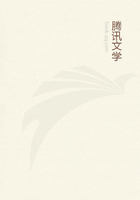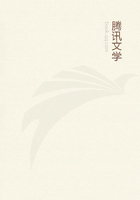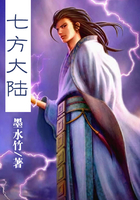I.
"I have not read this author's books, and if I have read them Ihave forgotten what they were about."
These words are reported as having been uttered in our midst not a hundred years ago, publicly, from the seat of justice, by a civic magistrate. The words of our municipal rulers have a solemnity and importance far above the words of other mortals, because our municipal rulers more than any other variety of our governors and masters represent the average wisdom, temperament, sense and virtue of the community. This generalisation, it ought to be promptly said in the interests of eternal justice (and recent friendship), does not apply to the United States of America. There, if one may believe the long and helpless indignations of their daily and weekly Press, the majority of municipal rulers appear to be thieves of a particularly irrepressible sort. But this by the way. My concern is with a statement issuing from the average temperament and the average wisdom of a great and wealthy community, and uttered by a civic magistrate obviously without fear and without reproach.
I confess I am pleased with his temper, which is that of prudence.
"I have not read the books," he says, and immediately he adds, "and if I have read them I have forgotten." This is excellent caution.
And I like his style: it is unartificial and bears the stamp of manly sincerity. As a reported piece of prose this declaration is easy to read and not difficult to believe. Many books have not been read; still more have been forgotten. As a piece of civic oratory this declaration is strikingly effective. Calculated to fall in with the bent of the popular mind, so familiar with all forms of forgetfulness, it has also the power to stir up a subtle emotion while it starts a train of thought--and what greater force can be expected from human speech? But it is in naturalness that this declaration is perfectly delightful, for there is nothing more natural than for a grave City Father to forget what the books he has read once--long ago--in his giddy youth maybe--were about.
And the books in question are novels, or, at any rate, were written as novels. I proceed thus cautiously (following my illustrious example) because being without fear and desiring to remain as far as possible without reproach, I confess at once that I have not read them.
I have not; and of the million persons or more who are said to have read them, I never met one yet with the talent of lucid exposition sufficiently developed to give me a connected account of what they are about. But they are books, part and parcel of humanity, and as such, in their ever increasing, jostling multitude, they are worthy of regard, admiration, and compassion.
Especially of compassion. It has been said a long time ago that books have their fate. They have, and it is very much like the destiny of man. They share with us the great incertitude of ignominy or glory--of severe justice and senseless persecution--of calumny and misunderstanding--the shame of undeserved success. Of all the inanimate objects, of all men's creations, books are the nearest to us, for they contain our very thought, our ambitions, our indignations, our illusions, our fidelity to truth, and our persistent leaning towards error. But most of all they resemble us in their precarious hold on life. A bridge constructed according to the rules of the art of bridge-building is certain of a long, honourable and useful career. But a book as good in its way as the bridge may perish obscurely on the very day of its birth. The art of their creators is not sufficient to give them more than a moment of life. Of the books born from the restlessness, the inspiration, and the vanity of human minds, those that the Muses would love best lie more than all others under the menace of an early death.
Sometimes their defects will save them. Sometimes a book fair to see may--to use a lofty expression--have no individual soul.
Obviously a book of that sort cannot die. It can only crumble into dust. But the best of books drawing sustenance from the sympathy and memory of men have lived on the brink of destruction, for men's memories are short, and their sympathy is, we must admit, a very fluctuating, unprincipled emotion.
No secret of eternal life for our books can be found amongst the formulas of art, any more than for our bodies in a prescribed combination of drugs. This is not because some books are not worthy of enduring life, but because the formulas of art are dependent on things variable, unstable and untrustworthy; on human sympathies, on prejudices, on likes and dislikes, on the sense of virtue and the sense of propriety, on beliefs and theories that, indestructible in themselves, always change their form--often in the lifetime of one fleeting generation.
II.














